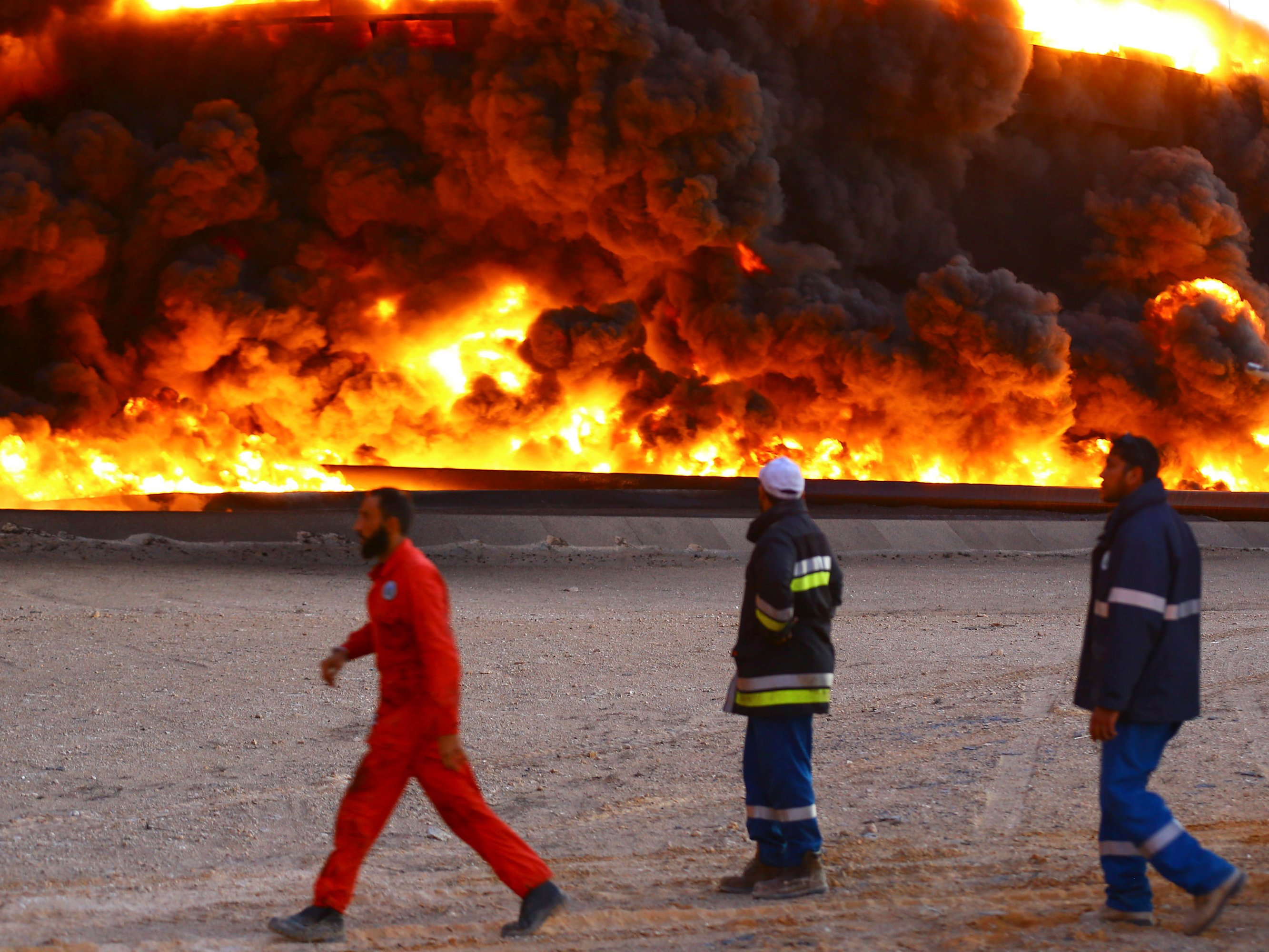
While the world has had its eyes glued on Iran, Saudi Arabia, and Syria, the Islamic State group, also known as ISIS or IS, has been creeping into another chaotic state: Libya.
And analysts think this will be a major stress point for Europe going forward.
"One of the most concrete geopolitical risks for Europe in the near future will be the complete or partial takeover of Libya by the militias of the so-called Islamic State," Citi Research’s Tina Fordham wrote.
"While the world’s attention was absorbed by the war in Syria, IS systematically increased its presence there in 2015," she added. "Their goal is to establish another resources-rich stronghold in the Arab world, thereby creating another stepping-stone towards the erection of a ‘new Caliphate.’"
Though it may seem as if Libya’s problems are removed from those facing Europe, Fordham points out two big reasons ISIS’ presence in the country presents a big risk:
- The Arab Spring’s only success story could be ISIS’ next target. Once ISIS builds its stronghold in Libya, it is likely to try to exploit the political and economic weakness of the only success story of the Arab Spring: Tunisia. (For what it’s worth, Libya’s interim UN-backed government is based in Tunisia.) "The West will have to dedicate considerable resources to the stabilization of Tunisia over the next few years," Fordham argues.
- A presence in Libya serves as an "ideal base" for organizing further terrorist attacks on European soil. "The chances of the West of getting involved in a military intervention in Libya over the next year or two is very high," Fordham warns.
Notably, things have been extremely chaotic in Libya since Muammar Gaddafi was overthrown in 2011, as two rival governments and numerous armed groups have been competing for power.
But back in mid-December, delegates from the various Libyan factions signed a deal to form a national unity government.
Some analysts think this could be a major turning point for the country and, subsequently, could mean that its oil may soon get back on the market — but others think this just colors Libya’s situation with even more uncertainty.
 RBC Capital Markets
RBC Capital Markets
"With over a million barrels currently shut-in due to the ongoing security and political challenges, it remains one of the few OPEC countries that could theoretically put substantial quantities of additional oil on the market this year," an RBC Capital Markets team led by Helima Croft wrote.
But "despite the progress," the team continued, "it is excessively soon to start penciling in the return of large quantities of additional Libyan barrels in the near term."
Interestingly, Croft cited two reasons that somewhat overlap with Fordham’s analysis as to why she and her team did not think Libyan barrels would flood the zone anytime soon: 1) The new, UN-backed government doesn’t actually meet in Libya, but rather in Tunisian hotel; and 2) The Islamic State has been keen on damaging Libya’s energy infrastructure.
In short, putting both Fordham’s and Croft’s arguments together, Libya is looking like a huge geopolitical risk for Europe going forward — in terms of oil, security, and even political ideology.



